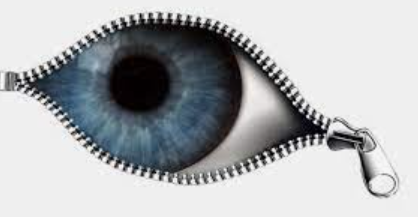Operation Inspiration
Some years ago, a fellow approached me in the parking lot of my office building and tried to sell me a watch. He had a box and a photocopy of a receipt showing a rather large sales price. I am a very trusting person – yes, sometimes even to the point of gullibility – but I didn’t really believe he’d paid the hundreds of dollars shown on the receipt.
However, it was a nice-looking watch, and I bought it for $40. I met a friend who worked in watches a couple weeks later and showed it to him. He immediately told me it was fake. When I asked how he knew, he couldn’t really tell me. It was just clear to him by sight that it wasn’t right. Little nuances of watches which I wouldn’t have picked up on, were obvious to him.
And that makes sense, because if that’s your business, your eye becomes trained to see what a quality piece would look like. I have the same thing when I read a written piece of poetry or prose. Spelling mistakes, incorrect use of words or punctuation like apostrophe’s (see what I did there?) and syntactical flaws grate on my nerves and jump out at me from the page.
I’m sure each of us, in our own area of expertise, see what others might not. I had a friend who was a computer networking professional and he took pleasure in seeing neat rows of color-coordinated Cat 5 cable coming out of patch panels that were clearly labeled. Most of us would not even notice that.
I heard a story of R’ Chaim Brisker who was walking with some students and someone wondered aloud how many leaves were on the tree they were passing. R’ Chaim looked up and gave them a number. The students thought he was joking but he said, “Yaakov Avinu looked and saw Eisav coming with 400 men. He didn’t count them, he just “saw” how many there were.”
I heard a similar story with R’ Moshe Feinstein zt”l, that someone asked how many windows a certain apartment building had. R’ Moshe threw out a number. The fellow went back and counted, finding that R’ Moshe was only off by one! He told R’ Moshe who responded, “I wasn’t including the one over the basement door as it’s not an actual window, it’s just for symmetry.” These great men had the vision to glance and see much more than others did.
Well, this message was driven home to me one day when I walked out of a supermarket and noticed a shopping cart in the middle of the parking lot traffic lanes in front of the store. I noticed two other people walk right by it, while I could only imagine, in horror, drivers being delayed by this obstacle sitting in the middle of the lane. I hurried over and moved it to its correct place near the door. I wondered how both pedestrians could have missed seeing it and the eventuality of what would happen when another person approached in their car and found the cart in their way.
R’ Chaim Friedman, z”l, a Rav from Monsey, told us about his wife’s Bais Yaakov principal who placed a crumpled piece of paper on the floor in the hallway before school one morning. He then stood and watched dozens of girls hurry and scurry in preparation for class, and stepping around the paper ball on the floor. That day he said to the girls, “Today we’re not going to start with Chumash. We’re going to start by discussing why nobody picked the paper up off the floor and threw it away.”
He wanted to impress upon them the importance of noticing things and doing what needed to be done. And what a lesson it was! Not only did the girls remember it, but they shared it and those they told it to shared it as well, and now I’m sharing it with you! Who knows? Maybe that’s why I see the obstacles in other people’s way and these people didn’t. Maybe they never heard the story of the crumpled paper ball. But now YOU have, and I’m sure you will start to see things more clearly.
They say that “in the Kingdom of the Blind, the one-eyed man is king.” The idea behind this aphorism is that even a limited ability is elevated when others lack that trait. But in reality, this only holds true when the blind people see vision as a virtue. When they consider it irrelevant, or possibly even a negative, they will not praise such a person.
We see it, sadly, when people don’t find value in things like watching what they say, being honest in their dealings with others, or focusing on spiritual matters rather than material ones. Such people are often the butts of jokes or ridiculed even to their faces. The people doing it just don’t see the truth.
But when it’s pointed out to us, if we’re honest with ourselves, we’ll be able to see where we can stand to improve and grow. If we’re open to it, we will start to see things we never imagined and, I daresay, things will start looking up.
© 2022 – All Rights Reserved
Did you enjoy this column? Feedback is welcome and appreciated. E-mail info@JewishSpeechWriter.com to share your thoughts. You never know when you may be the lamp that enlightens someone else.






